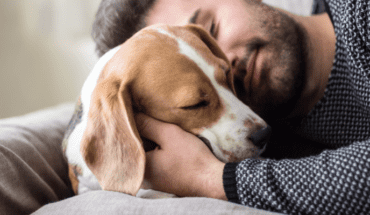Managing children’s fears around returning to school after coronavirus ‘lockdown’ : Dr Hayley van Zwanenberg, Child and Adolescent Psychiatrist at Priory Wellbeing Centre Oxford, has shared advice for parents on how to prepare their child emotionally for returning to school following on from the coronavirus lockdown.
Advice for children in primary or junior school
If you have a young child who is in primary school and who seems anxious about going back to school, try to talk to them as frequently as possible about school. Discuss fun memories you have of their teacher and little stories you have of them and their friends. This will ignite nice memories and help your child to get enthusiastic about going back.
You may also want to consider contacting their teacher and asking if they would be able to do a video call with you and your child. Your child might love it and engage well, or they may feel a bit embarrassed. Either way, it’s beneficial as they will see you interacting positively with their teacher and talking excitedly about going back to school.
Additionally, encourage them to contact their friends over a video call. When they’re little, think about setting up a game for them to play together. That way they’ll be playing with their friend even if they aren’t in the same room.
Children moving from year six to secondary school
It’s so important to help your child as they move into senior school. It’s a major life event for them. They’re going to be worrying about many things, including whether they will lose their close friendships and what unknowns they will face when they go to senior school.
Encourage your child to think about exciting things that they can do with the friends who are moving with them to their senior school, so that they can plan and look forward to it together.
I would also ask them if there’s anything that they would really like to know about their senior school. They might say “I want to know if I’ve got a friend in my tutor group” or “I’d really like to know where I’m meant to go on the first day or what my timetable looks like”. You can then find out some of these things by emailing the school. By reducing the unknowns, you help to reduce their worry and anxiety.
Moving to college or sixth form
Young adults in year 11 are more mature but have transitions of their own to make. When they return to education, they’ll be in a new situation, studying new subjects. Most will be quite enthusiastic about their courses as they’ve chosen them and are likely to be interested in the subjects.
Encourage them to contact their sixth form or college and ask if there are any textbooks they could borrow or buy. They might be quite willing to have a little read around the subjects they’re going to study, and it means that when they go back and start their new courses, they’ll feel that they’re ahead and already have some knowledge, and that’s a nice position for them to be in.
Also encourage them to keep in contact with their friends. If they seem anxious about doing so because they’re not sure what to talk about, get them to think about what they have in common with their friends. It might be that they love exercise, are both doing the same course or are both just quite bored and fed up during this time.
Whatever they have in common, encourage them to do something together. So if they are both into exercise, they could agree to develop a high intensity training session each week that they do together online. Or if they are both bored and don’t know what to do with their time, they could have a brainstorm about things to take up together. They could learn sign language, a foreign language, or they could take up something completely new like crocheting. They can then start researching and learning together. This will take the pressure off them having conversations, but will get them engaging.
How can I tell if my child is anxious about returning to school?
Did your child have anxiety before the coronavirus outbreak and lockdown? There are some young people who will feel very anxious when school starts. These tend to be young people who experienced signs of anxiety prior to the coronavirus outbreak. Previously, there may have been in tears about not wanting to go to school or they may have regularly said that they had tummy aches or felt sick on school days.
For these young people, they might seem fine at the minute. This is likely because they are in cocooned environment where they’re not exposed to the things that used to cause them anxiety. Unfortunately, when your child isn’t exposed to or avoids situations like this, their anxiety can grow and it can feel a lot worse when they are exposed once again.
For these young people, it’s really important to try to keep exposure going in relation to school and their social contacts. So think about doing some of the following:
Pass their school on your daily walk if possible
Try to drive them past school when you are out on an essential trip.
Consider contacting the school and asking for face-to-face contact with various teachers via an online video
Ask the school if you could possibly take your child to the school, to walk around, pick up a text book or wave at a teacher from a distance, whilst sticking to social distancing guidelines. This exposure will give you a good idea of how high your child’s anxiety is going to be when they go back to school. If these little bits of exposure cause anxiety, it’s likely that there’s going to be higher levels on their first day back.
It is recommended that you access support for your child if they’re showing signs of anxiety. This condition is very treatable but it’s best to catch it as early as possible.
Did your child not show any signs of anxiety prior to the coronavirus outbreak or lockdown?
If you don’t think your child had any anxiety about school before, but may be experiencing it now, look for signs such as irritability if you mention school, avoidance of school work, avoidance of contacting their friends or physical symptoms of anxiety such as their heart racing or feeling sick when you mention school.
For these young people, I would organise some sort of exposure to see how they cope. Also, access support either via the GP or through their school. You can also contact a specialist service, such as Priory Group. We have online consultations available for young people, so they can get access to the help that they need.
How to talk to a young person about their returning to school worries
It can sometimes be difficult to speak to a young person about whether or not they are worried. Often, they’ll avoid talking about their anxieties, but if you can get them to speak to you, that’s a really positive step.
Pick an appropriate time to talk to them about it. If they’re in an emotional or upset state, it’s probably not the best time. Often, a walk or a car journey can be good if your child is calm and is in a space where there aren’t too many distractions.
Explain to them that any worry they have is important. No worries are silly. You may wish to use our illustrations on childhood anxiety to explain to them why they are feeling this way. If they have a worry, let them know that you want to be able to try and help. Reassure them that you won’t go off and tell anyone they don’t want to know, and that you wouldn’t do anything to tackle their worry that they didn’t want you to do.
Remember, anxiety is really treatable. Many young people experience high levels of anxiety, which cause them to struggle to get into school or stay in contact their friends, but it’s possible for them to overcome this. So please do access support via your GP, the school or via a specialist service if it is needed.
- Supporting back to school anxiety in a time of COVID - 3rd September 2021
- Back to school anxiety - 4th September 2020
- Coping strategies for children post lockdown - 22nd July 2020





